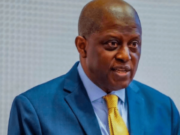In a development that has shaken confidence in Nigeria’s tertiary education sector, a Joint Committee of the House of Representatives has revealed extensive schemes of certificate forgery across multiple higher institutions, demanding far sterner punishment be meted out to offenders and their collaborators. The committee’s revelations and proposals may be a turning point in the battle to restore credibility to the country’s academic credentials.
Table of Contents

A Startling Discovery during On-Site Inspections
During a recent fact-finding tour of universities and polytechnics in Lagos State, members of the House’s investigative committee encountered a level of deception and collusion that they described as deeply alarming. Led by Honourable Abubakar Fulata (APC–Jigawa), the team visited the University of Lagos, Yaba College of Technology, Caleb University, and Lagos State University, among others.
Fulata expressed grave concern at how easily degree certificates are being manipulated, asserting that Nigeria is fast losing the moral high ground in education. He painted a picture of a system in crisis: people holding certificates in disciplines they can hardly discuss, and institutions that apparently facilitate the deceit.
“The past model was simple: students studied, sat exams, passed, and received valid certificates,” he stated. “Now, many seek to bypass the entire process through illicit channels.” His remarks suggested that the practice has escalated beyond individual misdeeds to system-level complicity.
Of particular concern is the involvement of staff and institutional management in facilitating forgery. When insiders collude, protection mechanisms collapse, and verification becomes little more than token paperwork. Such internal breakdowns, Fulata warns, inflict long-term damage on Nigeria’s academic standing.

Calling for Digital Safeguards, Legislative Reform, and Central Verification
Recognising that punitive measures alone will not suffice, the committee is pushing for a multi-pronged approach. First, tertiary institutions must integrate advanced security features and verifiable digital components into their certificates. These might include embedded codes, blockchain traceability, tamper-proof seals, or online verification portals that cannot be easily spoofed.
Second, the committee intends to recommend sweeping legislative changes. It will urge the National Assembly to enact tougher penalties—not only for those who forge credentials but also for institutional actors complicit in the malpractice. Under the proposed reforms, the law would reach beyond the “street forger” to cover any staff, registrar, or administrator who enables or turns a blind eye to the crime.
Third, a national, centralised database of academic credentials is in sight. Such a system would allow employers, foreign schools, and regulatory bodies to authenticate qualifications seamlessly. A central registry could act as the backbone of verification, making forgery significantly more difficult and risky.
These recommendations will soon be consolidated into the committee’s final report, which aims to create actionable blueprints for cleaning up the sector.

Restoring Trust in Nigeria’s Academic Reputation
The broader stakes of this investigation extend far beyond Nigeria’s shores. As certificate forgery scandals proliferate, the value of Nigerian degrees is under threat internationally. The committee warned that unless urgent action is taken, foreign institutions and employers might discount or outright reject Nigerian credentials, penalising honest graduates who earn their way.
Adding urgency to the timing, this inquiry coincides with the resignation of former Minister of Innovation, Science, and Technology Geoffrey Nnaji, who stepped down amid controversies tied to his academic record. While he maintains his departure was a gesture to prevent distractions to President Bola Tinubu’s agenda, the coincidence has fuelled media speculation about integrity in public office.
The committee has pledged to expand its investigations beyond Lagos, extending its inspections to institutions nationwide to assess the full scope of the racketeering network. In the coming weeks, it promises to make its final recommendations public, with the hope that Nigeria may reclaim integrity in its higher education system.
As this issue unfolds, all eyes will be on how the National Assembly responds, whether institutions embrace digital accountability, and whether Nigeria can reassert trust—both at home and abroad—in its academic standards.
Join Our Social Media Channels:
WhatsApp: NaijaEyes
Facebook: NaijaEyes
Twitter: NaijaEyes
Instagram: NaijaEyes
TikTok: NaijaEyes
READ THE LATEST EDUCATION NEWS














![Mr Macaroni Drops Blistering Remark: ‘APC Filled with Most Corrupt People’ as He Slams Tinubu’s Controversial Pardon for Criminals=]] Mr Macaroni](https://naijaeyesblog.com/wp-content/uploads/2025/03/Mr-Macaroni-1-1-180x135.avif)

![Chaos Erupts in Abuja Hotel as BBNaija Star Phyna Sparks Fierce Scene Over Alleged N200,000 Dispute [VIDEO] Phyna](https://naijaeyesblog.com/wp-content/uploads/2024/11/A-Picture-of-Phyna-BBNaija-180x135.jpg)























